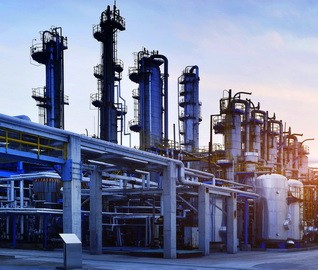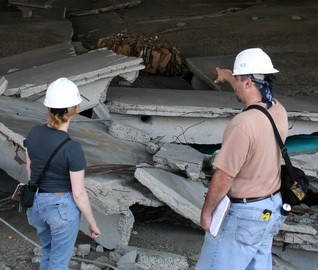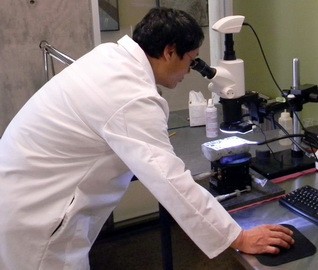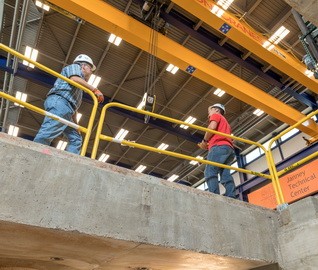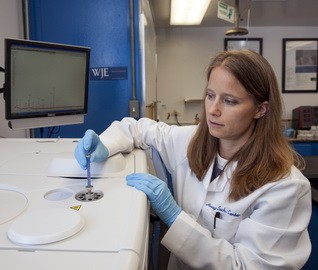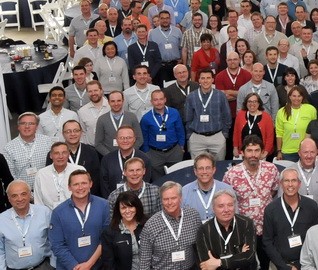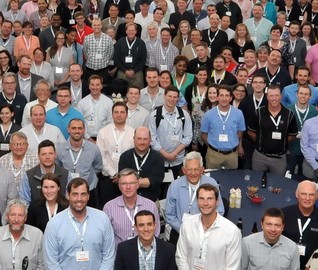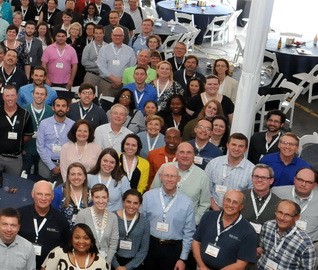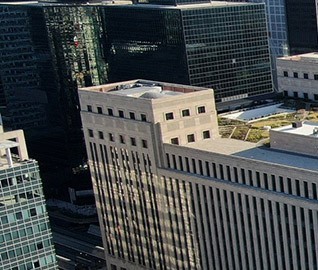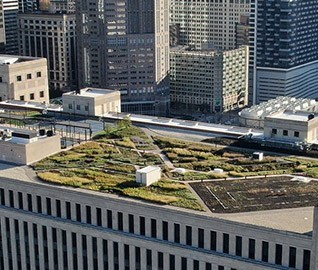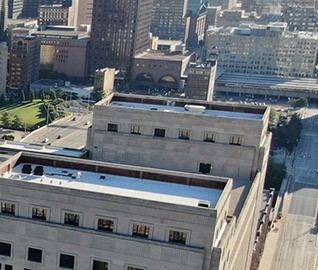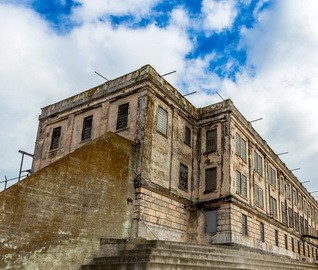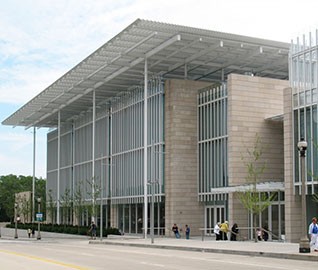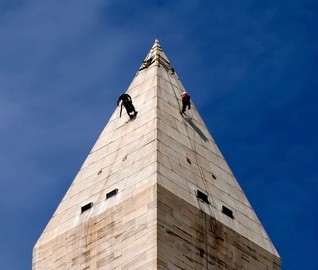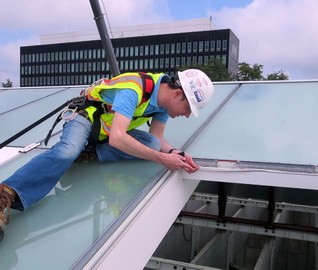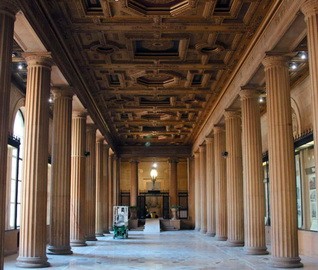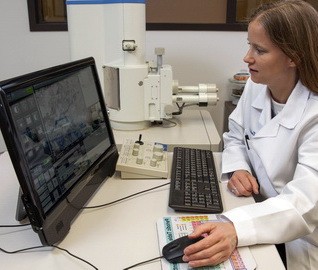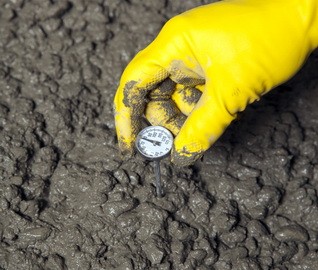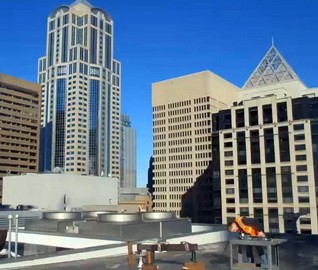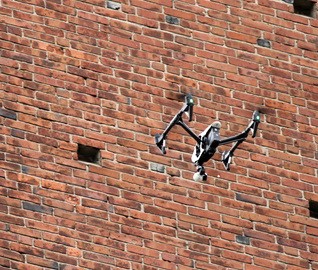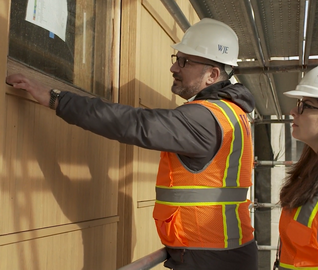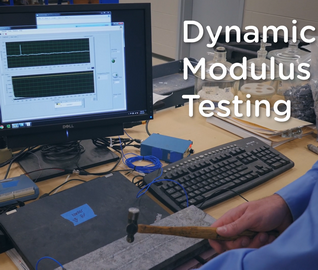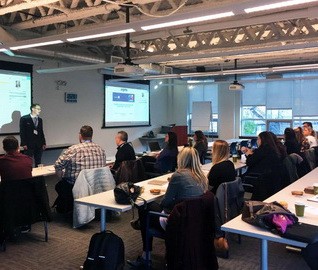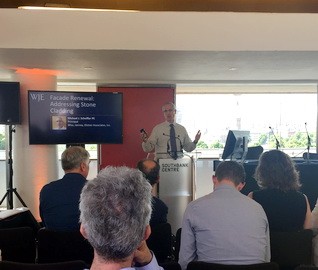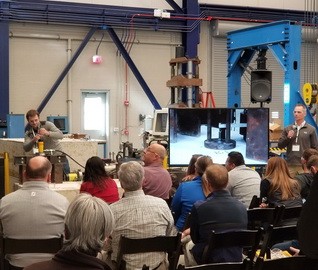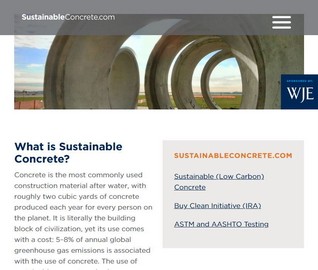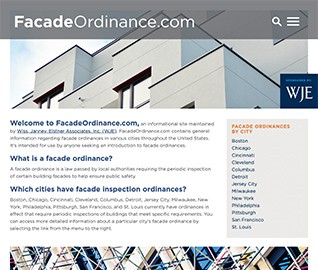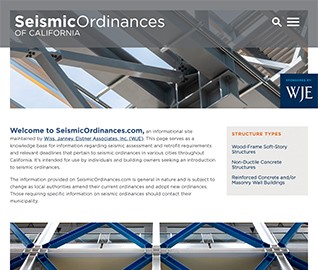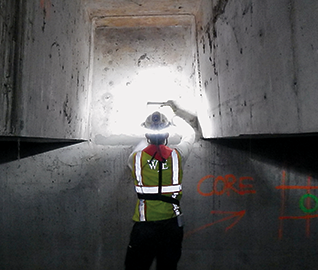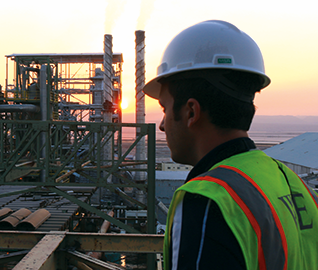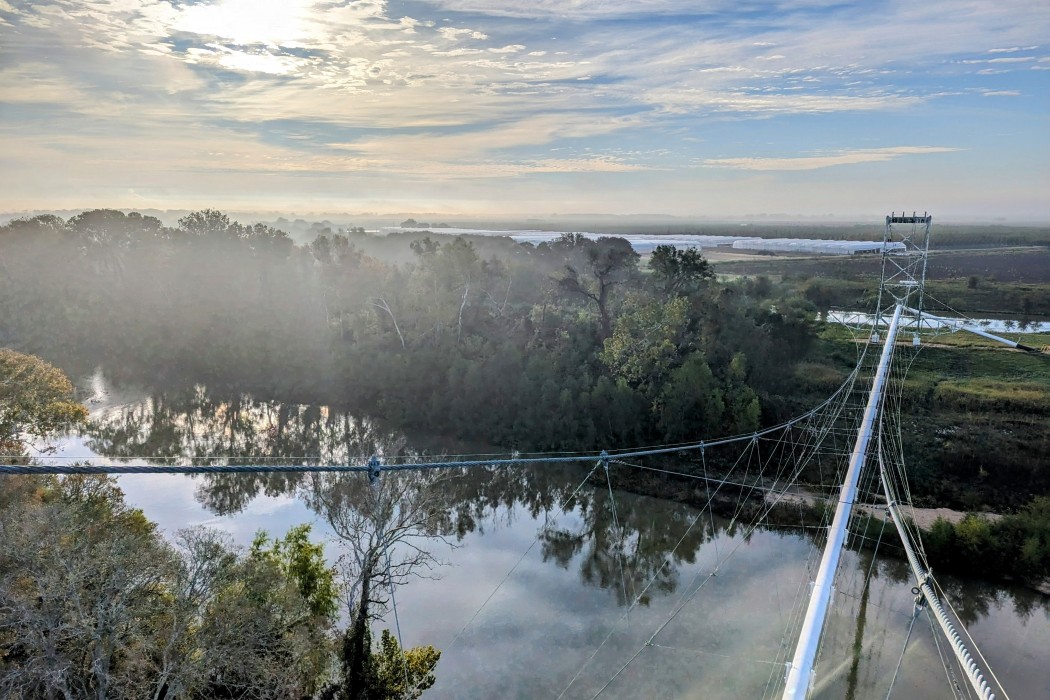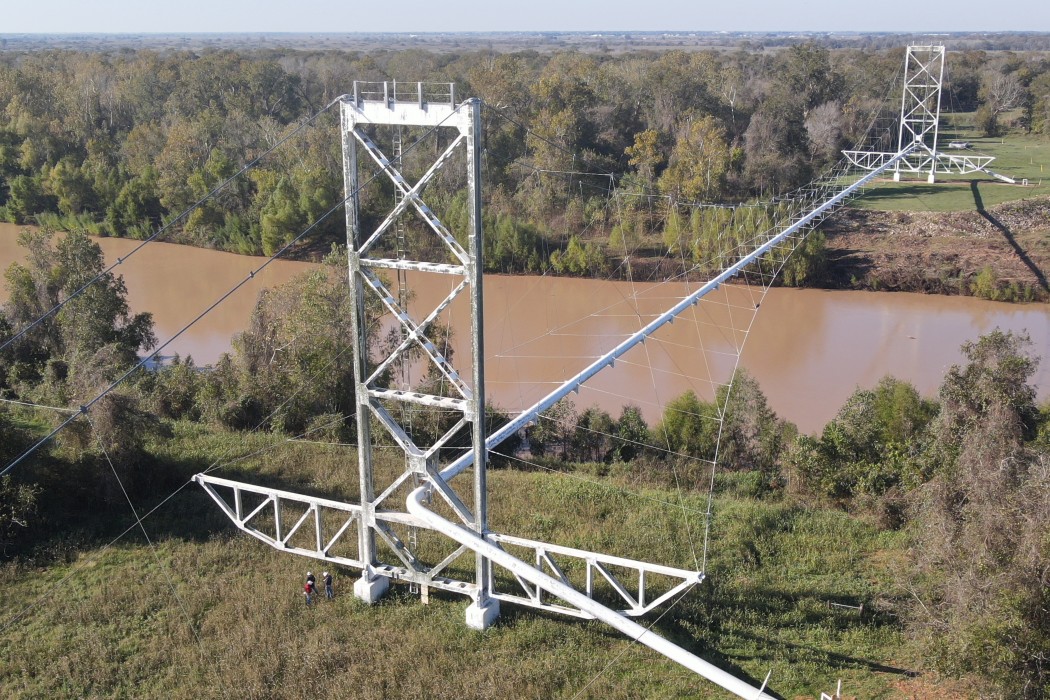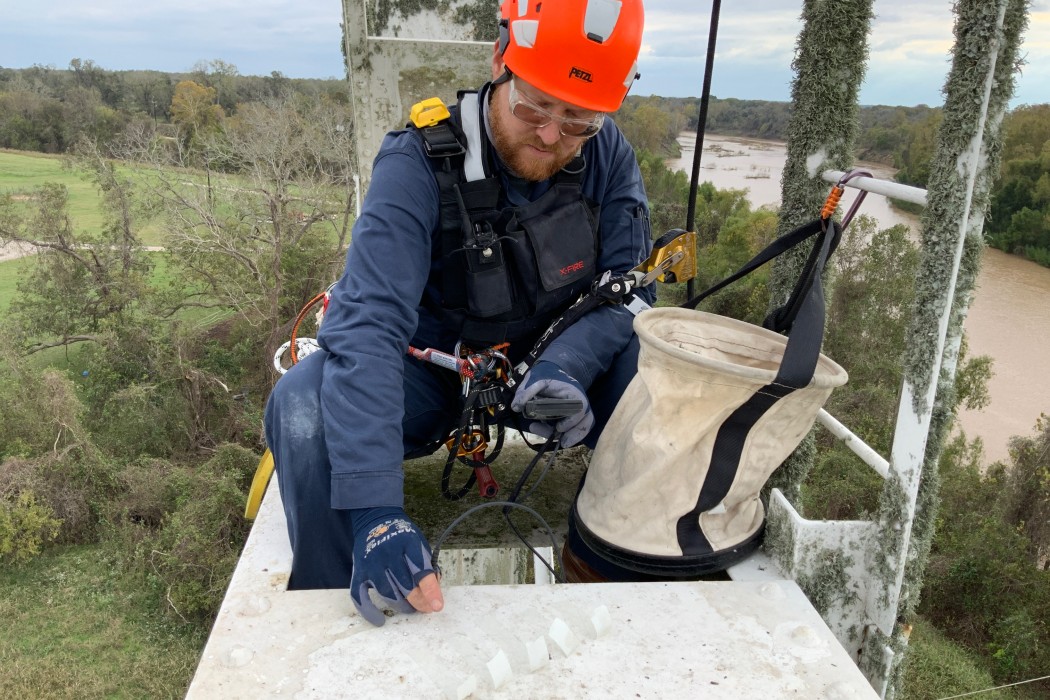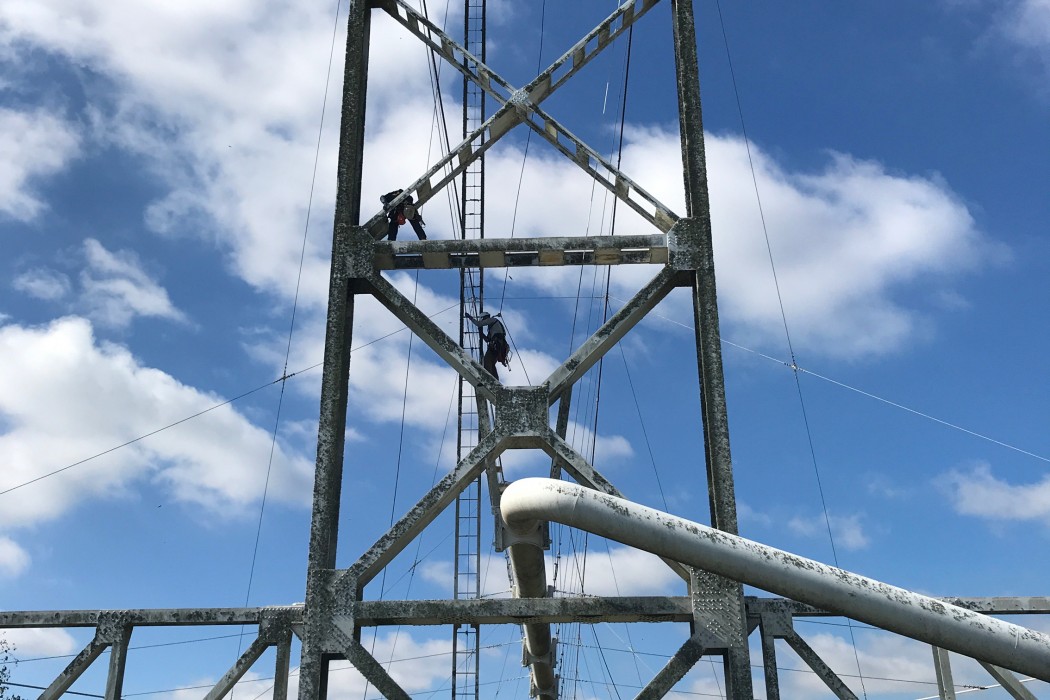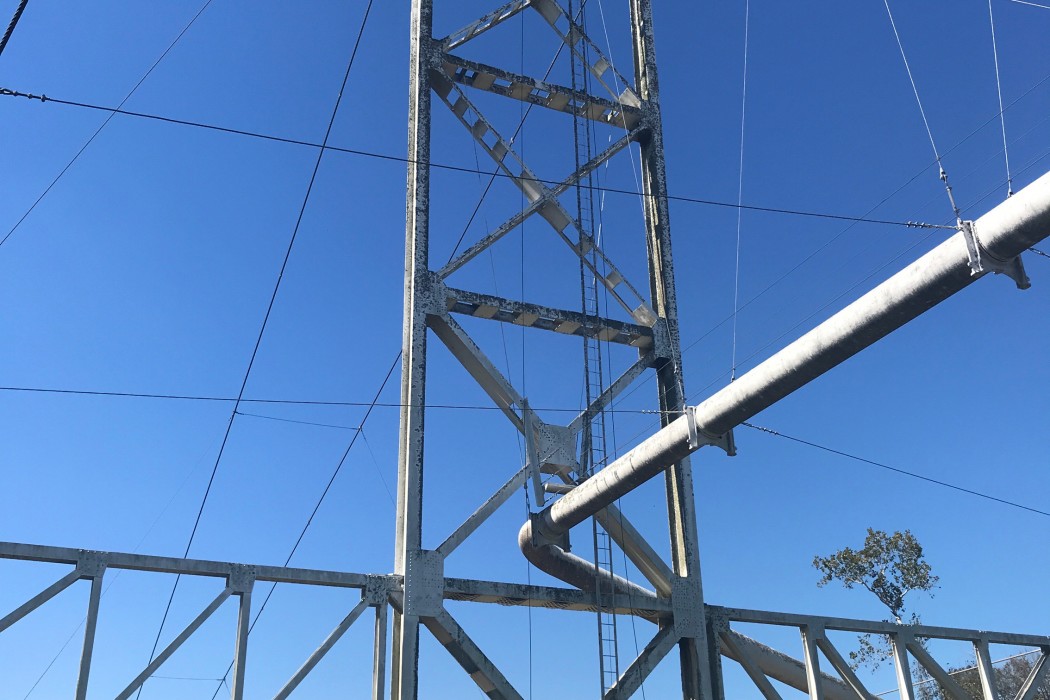WJE PROJECTS
Pipeline Suspension Bridges
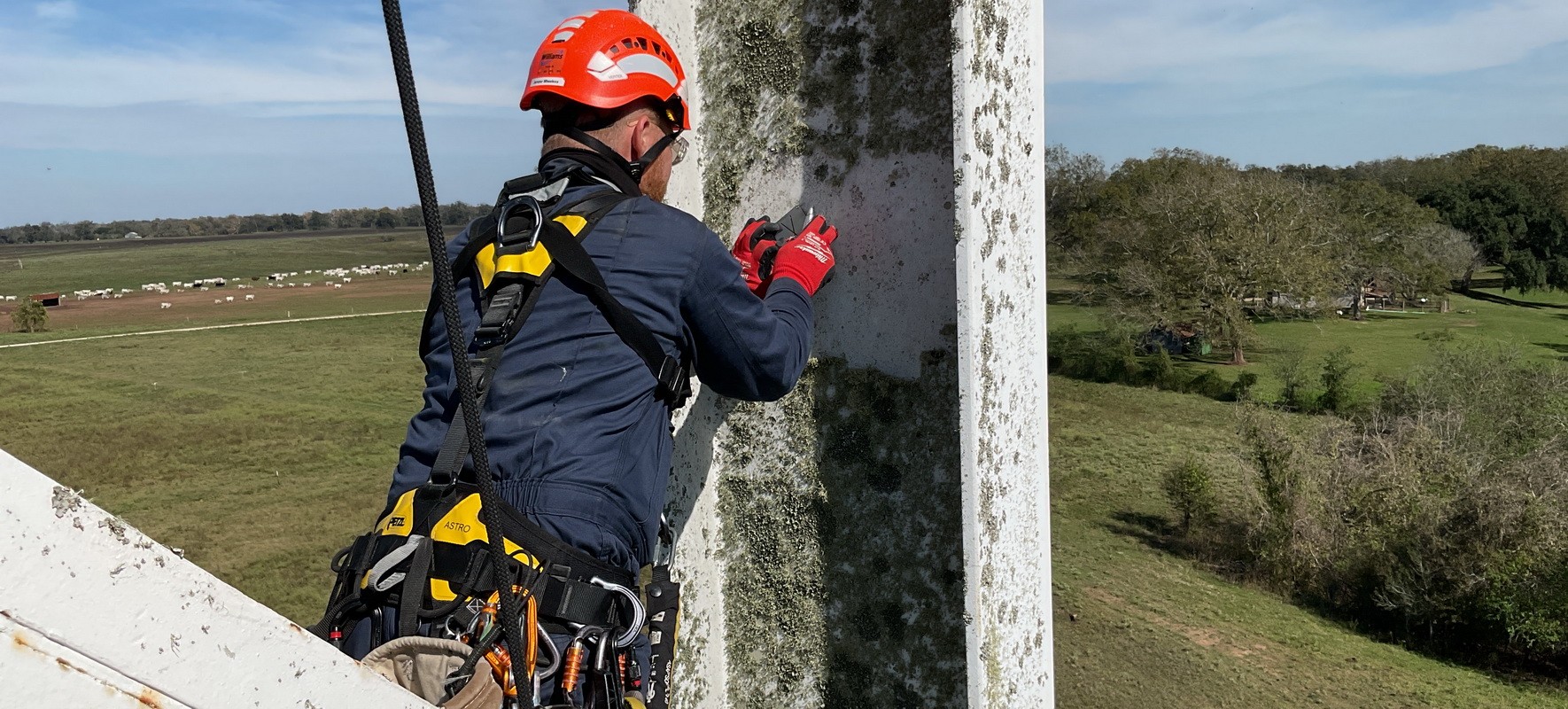

CLIENT |
Confidential |
LOCATION |
U.S. Gulf Coast |
In-Depth Condition Assessment
WJE was retained by a major U.S. energy company to perform an in-depth condition assessment of two pipeline suspension bridges. The objective of the assessment was to better understand the condition of the structural steel towers and develop prioritized repair recommendations with an associated Engineer’s Opinion of Probable Cost (EOPC). The remote locations of the tower and overall height of the towers required a unique approach for the structural assessment.
BACKGROUND
The subject pipeline suspension bridges carry a natural gas pipeline across two major rivers. Each bridge contains two primary suspension cables with vertical drapes that are supported by the top of a structural steel tower on each side of the river. The bridges also contain two suspension cables with horizontal drapes on each side of the pipeline that are supported by structural steel trusses (wind booms) extending laterally from the main portion of the towers. The structural steel towers are approximately one hundred feet tall above grade and 112 feet wide, including both wind booms.
SOLUTION
WJE’s in-depth assessment included a visual assessment and a coating evaluation. The coating evaluation included coating thickness measurements and coating adhesion measurements to better understand the coating system.
To avoid requiring boom lifts to be mobilized to the remote locations of the towers, we utilized industrial rope access techniques to perform the assessment of the towers. We utilized Society of Professional Rope Access Technicians on our Difficult Access Team (DAT) to safely perform the assessment. Using industrial rope access techniques also allowed for a more in-depth and comprehensive assessment when compared to access from a boom lift or an assessment done only by drone. Prior to performing the assessment, our DAT and safety groups developed a detailed work plan outlining the assessment steps, potential hazards, and hazard controls.
Upon competition of the assessment, we provided the client a detailed report which included keynoted electronic drawings identifying areas of corrosion and coating related distress. We also provided a prioritized list of conceptual repair recommendations with an EOPC.
RELATED INFORMATION
-
 Our knowledge of bridge performance is supported by technical expertise in structural... MORE >Services | Bridge Engineering
Our knowledge of bridge performance is supported by technical expertise in structural... MORE >Services | Bridge Engineering -
 We apply the lessons learned from more than 175,000 projects to provide clients with a full... MORE >Services | Condition Evaluation
We apply the lessons learned from more than 175,000 projects to provide clients with a full... MORE >Services | Condition Evaluation -
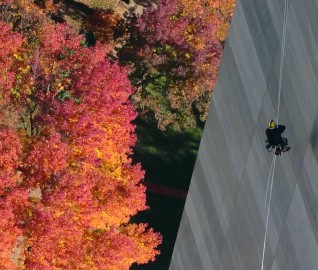 We employ our industrial rope access team or drone capabilities to provide clients a solution to... MORE >Services | Difficult Access and Drone Survey
We employ our industrial rope access team or drone capabilities to provide clients a solution to... MORE >Services | Difficult Access and Drone Survey -
 Learn about our Houston office MORE >Offices | Houston
Learn about our Houston office MORE >Offices | Houston


